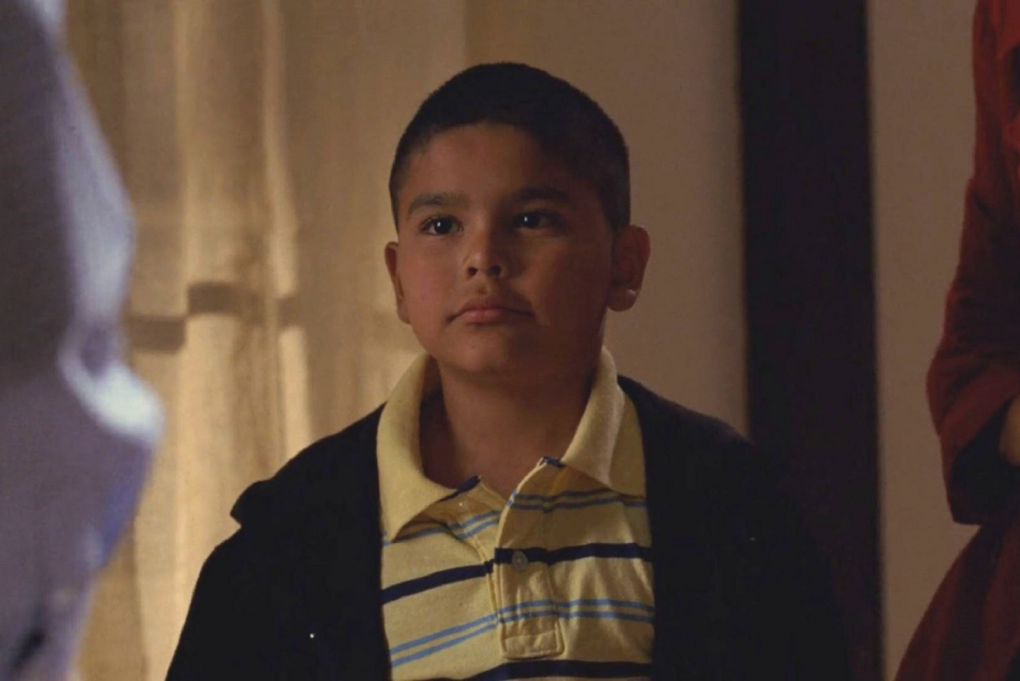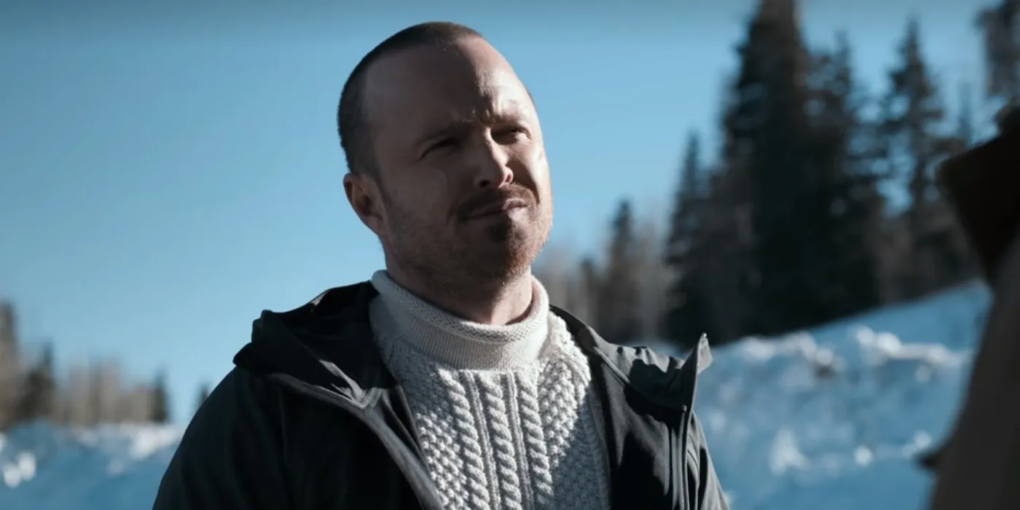
The Death Of Brock Cantillo And Its Impact On Breaking Bad
In the gripping world of television, few series have left as indelible a mark as “Breaking Bad.” Its complex characters, intricate plotlines, and nail-biting drama have cemented it as a modern classic. One character whose tragic demise sent shockwaves through the show’s narrative was Brock Cantillo. In this in-depth exploration, we’ll dissect the circumstances surrounding Brock’s death and how it reverberated throughout the Breaking Bad universe.
The Setup
The Poisonous Plot
Breaking Bad’s brilliance often lay in its ability to create intricate webs of deceit. Brock Cantillo’s fate was sealed when he inadvertently ingested a poisonous plant. Walter White orchestrated this sinister act to manipulate Jesse Pinkman, a key character and Brock’s guardian.
Emotional Turmoil
Jesse’s relationship with Brock was built on trust and affection. The innocent child became a symbol of purity in Jesse’s tumultuous life. The emotional impact of Brock’s suffering and the revelation of Walter’s involvement sent shockwaves through the series.
The Aftermath
A Fractured Friendship
Jesse’s discovery of Walter’s betrayal shattered their friendship. The emotional turmoil pushed Jesse further away from Walter, setting the stage for an epic showdown.
Walter’s Descent
Walter White’s character took a darker turn following Brock’s poisoning. His ruthless pursuit of power and self-preservation intensified, making him one of television’s most iconic antiheroes.
Ripple Effects
Brock Cantillo’s death wasn’t contained to Jesse and Walter alone. It had a domino effect on other characters and storylines, leaving no one untouched.
Character Transformations
Jesse Pinkman’s Evolution
Jesse’s journey from a troubled drug dealer to a man seeking redemption was profoundly impacted by Brock’s tragedy. His desire for revenge against Walter became a driving force.
Walter White’s Moral Decay
Walter’s moral compass eroded further after Brock’s death. He became increasingly ruthless, leading to catastrophic consequences for those around him.
The Turning Point
The Heisenberg Persona
Walter White’s transformation into the notorious Heisenberg was hastened by the Brock Cantillo incident. His evolution into a ruthless drug lord was now in full swing.
Hank Schrader’s Pursuit
The revelation of Walter’s involvement in Brock’s poisoning reignited Hank Schrader’s determination to bring him to justice, setting the stage for a thrilling showdown.
The Climax
Ozymandias
The episode “Ozymandias” stands as one of Breaking Bad’s most harrowing chapters. Brock’s death casts a long shadow, leading to a devastating confrontation between Walter and Jesse.
The Domino Effect on Secondary Characters
Brock Cantillo’s death sent shockwaves through the show’s ensemble cast. Here’s a closer look at how it affected some of the secondary characters:
1. Saul Goodman
Brock’s death served as a stark reminder of the dangerous world Saul Goodman operated in. It forced him to reevaluate his own safety and alliances.
2. Skyler White
Skyler, Walter White’s wife, was already grappling with the moral consequences of her husband’s actions. Brock’s death added another layer of guilt and tension to her character arc.
3. Marie Schrader
As Hank Schrader’s wife, Marie felt the reverberations of her husband’s intense pursuit of Walter. Brock’s death exacerbated her anxiety and strained her relationship with Skyler.
Impact on Secondary Characters
| Character | Impact |
|---|---|
| Saul Goodman | Heightened awareness of danger in his profession. |
| Skyler White | Increased guilt and tension in her already strained marriage. |
| Marie Schrader | Elevated anxiety and tension, particularly in her relationship with Skyler. |
Symbolism and Foreshadowing
Breaking Bad is known for its intricate symbolism and foreshadowing. Brock Cantillo’s death was no exception. Several key symbols and foreshadowing elements are worth exploring:
- The Lily of the Valley: This poisonous plant symbolizes deception and hidden danger. Its presence foreshadowed the dark turn of events surrounding Brock’s death;
- Color Symbolism: The use of colors in Breaking Bad is well-documented. The vibrant colors of the candy Brock loved contrasted with the sinister nature of his poisoning, highlighting the show’s visual storytelling;
- Walter’s Hat: Walter’s hat, found at the scene of Brock’s poisoning, served as a chilling reminder of his involvement and the secrets he harbored.

Viewer Reaction and Fan Theories
Brock Cantillo’s death sparked intense discussions among Breaking Bad fans. Social media and online forums were abuzz with theories and reactions. Here are some of the prevalent fan theories and viewer reactions:
Fan Theories:
- Walt’s Motive: Fans debated whether Walter White truly cared about Brock or if his actions were solely motivated by self-preservation;
- Jesse’s Revenge: Many speculated about how Jesse would seek revenge on Walter for his role in Brock’s suffering;
- The Looming Confrontation: Viewers eagerly anticipated a showdown between Walter and Hank Schrader, fueled by the revelation of Brock’s poisoning.
Viewer Reactions:
- Emotional Rollercoaster: Fans described their emotional journey, from shock and anger to empathy for Jesse and contempt for Walter;
- Moral Dilemmas: Brock’s death triggered discussions on morality, responsibility, and the consequences of one’s actions;
- Binge-Watching Frenzy: The suspense surrounding Brock’s fate drove binge-watching as viewers couldn’t wait to see how the storyline unfolded.
Legacy and Impact on TV Storytelling
The ripple effect of Brock Cantillo’s death extended beyond “Breaking Bad.” It left an indelible mark on television storytelling as a whole. Here’s how it influenced subsequent series:
- Complex Characters: “Breaking Bad” set a high bar for multifaceted characters, inspiring other shows to explore morally ambiguous protagonists;
- Plot Twists: The series’ ability to craft jaw-dropping plot twists became a hallmark, encouraging other writers to embrace unpredictability;
- Narrative Depth: The depth of storytelling in “Breaking Bad” showed the power of long-form television to explore intricate character arcs and themes.
As we reflect on the tragic death of Brock Cantillo, it becomes evident that its impact transcends the boundaries of the show itself, forever altering the landscape of television storytelling.
The Ethical Quandary
Brock Cantillo’s death posed a significant ethical dilemma not only for the characters within the show but also for viewers and critics. Here, we delve into the ethical questions raised by this pivotal event:
- Moral Ambiguity: Brock’s poisoning showcased the moral gray areas inhabited by characters like Walter White. Viewers were forced to grapple with their own ethical judgments of his actions;
- Responsibility: Was Walter solely responsible for Brock’s suffering, or did Jesse bear some blame for indirectly facilitating the events that led to it?;
- Justification: Some viewers questioned whether Walter’s actions were justified in the context of his desperate pursuit to protect his family.
Ethical Questions
| Ethical Question | Consideration |
|---|---|
| Moral Ambiguity | The blurring of lines between right and wrong in the show’s characters. |
| Responsibility | The degree of culpability assigned to Walter and Jesse. |
| Justification | Whether Walter’s actions could be justified in his own mind and by viewers. |
Brock Cantillo’s Resilience
While Brock’s death was a tragedy, it’s essential to recognize the resilience of his character and the impact he had on those around him:
- Innocence Amidst Chaos: Brock represented a glimmer of innocence in the dark and chaotic world of “Breaking Bad.”;
- Jesse’s Redemption: Brock’s presence motivated Jesse Pinkman to seek redemption and distance himself from the criminal lifestyle.
- A Symbol of Hope: In a show marked by despair, Brock’s character offered hope for a better future, even if that hope was ultimately shattered.

Alt:Boy Brock plays video game on the sofa
Themes of Betrayal and Trust
Brock Cantillo’s tragic death brought the themes of betrayal and trust to the forefront of the narrative:
- Jesse’s Betrayal: The revelation of Walter’s involvement shattered Jesse’s trust in his mentor, leading to a profound sense of betrayal;
- Walter’s Deception: Walter’s ability to manipulate those around him, including Jesse and Brock, highlighted the theme of deception running throughout the series;
- Impact on Relationships: The rupture in trust between characters had lasting consequences on their relationships and the overall story arc.
Critical Acclaim and Awards
Brock Cantillo’s storyline was a critical turning point in “Breaking Bad” and garnered significant recognition:
- Emmy Awards: The series received critical acclaim and won numerous Emmy Awards, including those for Outstanding Drama Series, Writing, and Acting;
- Complex Storytelling: Critics praised the show’s ability to tackle complex moral and ethical issues while maintaining a gripping narrative;
- Influence on TV: “Breaking Bad” influenced a new wave of television storytelling, inspiring a trend toward more morally ambiguous and psychologically rich characters.
Awards and Nominations
| Award Category | Recognition |
|---|---|
| Emmy Awards (Various) | Wins and nominations for outstanding achievements. |
| Complex Storytelling | Recognition for addressing complex themes. |
| Influence on TV | Impact on the landscape of television storytelling. |
The Evolution of Jesse Pinkman
A Shattered Innocence
Brock Cantillo’s death had a profound impact on Jesse Pinkman, pushing his character arc into uncharted territory:
- From Lost Soul to Vigilante: Jesse’s evolution from a lost, drug-addicted soul to a determined vigilante seeking retribution was accelerated by Brock’s death;
- The Breaking Point: The trauma of losing Brock shattered Jesse’s innocence and fueled his relentless pursuit of the truth;
- A Complex Character: Jesse’s character development became one of the most compelling aspects of the series, showcasing his resilience and inner turmoil.
The Parallels with Greek Tragedy
The Tragic Flaw
Brock Cantillo’s death shares striking parallels with the classic elements of Greek tragedy:
- Hubris and Downfall: Walter White’s unchecked ambition and manipulation of others, leading to Brock’s poisoning, align with the classic tragic flaw of hubris;
- The Cathartic Effect: Brock’s death served as a cathartic moment for viewers, eliciting both sympathy for the victim and anticipation of Walter’s eventual downfall;
- Fate and Irony: The inevitability of Brock’s fate and the irony of Walter’s actions coming back to haunt him mirrored the themes of fate and nemesis in Greek tragedies.
Brock Cantillo’s Enduring Influence
A Catalyst for Change
Brock Cantillo’s presence in “Breaking Bad” reverberates long after his tragic death:
- Subsequent Seasons: Even in the post-Brock seasons, his memory continues to impact the characters’ decisions and actions;
- Fan Theories and Speculation: Fans continue to dissect the show, searching for hidden meanings and connections related to Brock’s role;
- Legacy of Complexity: Brock’s character remains a testament to the show’s ability to craft multi-dimensional, unforgettable characters.
The Moral Complexity of Walter White
Brock Cantillo’s death forces us to confront the moral complexity of Walter White’s character. As the series unfolds, we witness Walter’s transformation from a mild-mannered chemistry teacher to the ruthless drug lord known as Heisenberg. Brock’s poisoning serves as a pivotal moment in this transformation.
Walter’s actions throughout the series reveal a morally ambiguous character. While he initially claims to be motivated by a desire to provide for his family, his choices become increasingly self-serving. The manipulation of Jesse Pinkman and the poisoning of Brock are clear examples of Walter’s moral descent.
The aftermath of Brock’s death highlights the consequences of Walter’s choices. Jesse’s discovery of the truth shatters their relationship, leading to a deep rift between the two characters. Walter’s descent into the criminal underworld accelerates, and he becomes a figure consumed by power and ambition.
The Impact on Hank Schrader
Brock Cantillo’s death has a profound impact on Hank Schrader, a character who represents law and order within the series. Hank is a dedicated DEA agent who is relentless in his pursuit of the elusive drug lord, Heisenberg, who is, unbeknownst to him, his own brother-in-law, Walter White.
As Hank delves deeper into his investigation, he begins to connect the dots between the blue methamphetamine on the streets and the elusive Heisenberg. Brock’s poisoning becomes a pivotal piece of evidence, leading Hank to question Jesse Pinkman, who was previously involved in the drug trade. The revelation of Jesse’s relationship with Brock and his connection to Heisenberg intensifies Hank’s determination to bring down the drug lord.
Brock’s death serves as a catalyst for Hank’s pursuit of justice. It fuels his relentless quest to unmask Heisenberg’s true identity, setting the stage for a high-stakes showdown that will have far-reaching consequences for the series.

The Emotional Impact on Viewers
Beyond the intricacies of the plot and character development, Brock Cantillo’s death has a significant emotional impact on viewers. “Breaking Bad” is known for its ability to elicit strong emotional responses from its audience, and Brock’s storyline is no exception.
Viewers were shocked and deeply affected by the revelation of Brock’s poisoning. The emotional turmoil experienced by Jesse Pinkman, a character who had garnered immense sympathy from viewers, resonated deeply. As Jesse grappled with the betrayal and the suffering of an innocent child, viewers found themselves emotionally invested in his journey.
The emotional resonance of Brock’s death is a testament to the show’s storytelling prowess. It reminds us that “Breaking Bad” is not just a series about crime and moral decay but also a powerful exploration of the human condition and the choices that define us.
The Art of Foreshadowing
One of the defining qualities of “Breaking Bad” is its meticulous use of foreshadowing, and Brock Cantillo’s story is no exception. The series’ creator, Vince Gilligan, masterfully weaved hints and clues throughout the narrative, making the revelation of Brock’s poisoning all the more impactful.
As viewers revisit earlier episodes, they can spot subtle hints and symbols that allude to the eventual tragedy. The use of the Lily of the Valley plant, the visual motifs, and even the colors associated with Brock all serve as foreshadowing elements. This attention to detail not only rewards attentive viewers but also adds layers of complexity to the storytelling.
The Ethical Debates
Brock Cantillo’s death sparked intense ethical debates among fans and critics alike. It became a focal point for discussions on morality, responsibility, and the consequences of one’s actions.
Viewers found themselves pondering the moral ambiguity of Walter White’s character. Was he driven solely by a desire to protect his family, or did he harbor darker motives? The debate extended to Jesse Pinkman’s role in Brock’s poisoning, raising questions about complicity and culpability.
These ethical debates enriched the viewing experience and elevated “Breaking Bad” beyond a mere crime drama. They transformed the show into a thought-provoking exploration of the human capacity for both good and evil.
Brock Cantillo’s Enduring Legacy
Long after the final episode of “Breaking Bad” aired, Brock Cantillo’s character continues to leave an indelible mark on the world of television. His legacy is multifaceted and enduring.
- Influence on Subsequent Series: The impact of “Breaking Bad” on the television landscape is undeniable. It inspired a new wave of series that embraced morally complex characters and intricate storytelling;
- Memorable Character: Brock’s character is remembered not only for his tragic fate but also for the innocence and hope he represented in a world tainted by crime;
- Critical Analysis: Scholars and critics continue to analyze Brock’s role in the series, exploring themes of manipulation, morality, and narrative structure.
The Breaking of Trust
Brock Cantillo’s death shattered the trust between key characters in the series. The relationship between Jesse Pinkman and Walter White was built on a foundation of trust, and the revelation of Walter’s involvement in Brock’s poisoning was a devastating blow.
Jesse, who had considered Walter a mentor and father figure, felt an intense sense of betrayal. The emotional turmoil he experienced was palpable, and it drove a wedge between the two characters. This breakdown of trust became a driving force in the series, as Jesse’s quest for revenge and justice against Walter intensified.
The loss of trust between Jesse and Walter was not isolated; it had ripple effects on other relationships within the show. It added tension to interactions between Jesse and other characters, including Saul Goodman and Mike Ehrmantraut, as the repercussions of Brock’s death continued to reverberate.
The Impact on Walter White’s Character Arc
Brock Cantillo’s tragic death played a pivotal role in the evolution of Walter White’s character arc. Walter’s journey from a mild-mannered chemistry teacher to a ruthless drug lord is one of the central themes of “Breaking Bad,” and Brock’s poisoning marked a significant turning point.
Walter’s initial justification for his actions was the need to secure his family’s financial future. However, as the series progressed, his motivations became increasingly self-serving. The poisoning of Brock, while intended to manipulate Jesse Pinkman, showcased Walter’s willingness to cross moral boundaries for personal gain.
The aftermath of Brock’s death revealed the depths of Walter’s moral decay. He became a character driven by ambition, ego, and a desire for power. His actions following Brock’s death set in motion a chain of events that had dire consequences for himself and those around him.
The Symbolism of Innocence Lost
Brock Cantillo’s character served as a symbol of innocence in the morally complex and often ruthless world of “Breaking Bad.” His tragic death was a stark reminder of the loss of innocence and purity in the series.
Throughout the show, viewers witnessed the transformation of multiple characters, including Jesse Pinkman and Walter White. Brock’s poisoning accelerated these character evolutions, pushing them further down paths of moral ambiguity and darkness.
Brock’s innocence was contrasted with the increasing moral ambiguity of other characters, particularly Walter White. This stark dichotomy highlighted the themes of morality and ethics that permeate the series. His character became a touchstone for viewers to gauge the moral compass of the other characters and the show’s overarching narrative.
Conclusion
Brock Cantillo’s tragic death was a pivotal moment in Breaking Bad’s narrative. It tore at the very fabric of the show, reshaping characters and propelling the storyline to new heights of tension and drama. As we reflect on this heart-wrenching event, it becomes clear that the impact of Brock’s demise on Breaking Bad was nothing short of seismic.
FAQs
Brock was poisoned with Lily of the Valley berries.
Jesse’s reaction was one of anger and betrayal, leading to a deep rift with Walter White.
“Ozymandias” marks a turning point in the series, with the fallout from Brock’s death reaching its climax.
Yes, Brock’s death had ripple effects on multiple characters, pushing the show’s plot in unexpected directions.
Brock’s death accelerated Walter White’s descent into the Heisenberg persona, making him even more ruthless.






